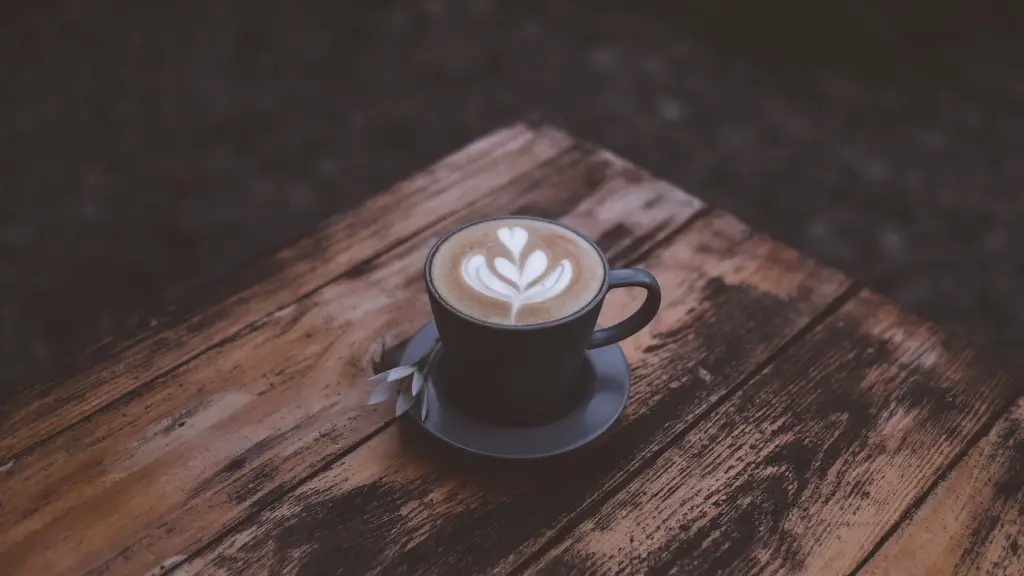Caffeine and Sleep
Coffee has long been associated with keeping people alert and energetic, since it contains caffeine, a natural stimulant found in the leaves, beans, and fruits of more than 60 plants. Caffeine alters the levels of neurotransmitters, including dopamine and norepinephrine, which can impact our ability to concentrate and stay alert. Some studies also suggest that drinking coffee, particularly later in the day, can lead to less satisfying, restful sleep. Drinking coffee after noon has been found to reduce total sleep time and, thus, the body’s ability to fully restore and recharge the night before.
Beneficial Aspects of Coffee in the Afternoon
Yet, there can be some beneficial aspects to drinking coffee after noon as well. Caffeine can help make one more productive and motivated than usual, even during periods of peak work. A study conducted in 2013 showed that caffeine intake had a positive effect on cognitive performance and alertness in the afternoon. It can also help to reduce symptoms of depression. In addition, coffee is a popular way to socialize with friends and family, a valuable benefit to many.
Coffee Intake Guidelines
It is important to keep in mind that, like all things, moderation is key. The U.S. Dietary Guidelines recommend up to 400 milligrams (3 to 4 cups of coffee) per day. It is important to be mindful of how what we consume can impact our health; this includes not just coffee, but other caffeinated beverages and edibles, as well. Too much caffeine can lead to jitters, insomnia and other symptoms. Thus, those who find that their bodies respond poorly to the late afternoon coffee, many experts agree it is better to take a break and set up a regular caffeine pattern for their day.
The Role of Genetics
Our genetic makeup can also influence our sensitivity to caffeine. Genetics can affect how quickly the caffeine metabolizes, leading to an increase or decrease in its effects depending on the person. Each person’s body has a gut microbiome composed of beneficial bacteria give it a particular set of responses to certain foods and drinks. Those who have less of certain types of enzymes, particularly those based in the liver, can have a heightened sensitivity to the effects of caffeine and should, therefore, limit their consumption in the late afternoon.
Other Alternatives
In order to reduce the potential risk of consuming caffeine late in the day and manage the circadian rhythm, many people opt to switch to decaffeinated coffee or other less stimulating beverages after noon. Alternatives such as herbal teas and decaffeinated soft drinks can be tasty and satisfying on their own. Additionally, there are many energizing food snacks, like nuts, yogurt, and fresh fruit, which can be effective in providing sustained energy during the day.
Coffee Sensitivities Among Young Adults
Research has also shown that young adults are more sensitive to the effects of caffeine than adults over 30. This is because of the varying effects that hormones of various ages and sexes have on the reaction to caffeine. Young adults should be especially mindful of the effects that caffeine can have on their bodies if consumed in the late afternoon and adjust their intake levels accordingly.
Emotional Effects of Caffeine Consumption
One of the least considered effects of caffeine is its emotional impact. Excessive caffeine can lead to an increase in anxiety, low mood, and irritability. It is important to be aware of the emotional side effects in order to properly manage the amount of caffeine that is consumed. Additionally, the physiology of stress can cause the body to be more sensitive to caffeine’s effect than usual, thus increasing the potential impact on the body’s emotional health.
The Bottom Line
Ultimately, it is up to each individual to determine whether it is okay to drink coffee in the afternoon – and the answer may differ from person to person. Taking into account one’s genetics, age, and stress levels are key in order to make a determination that meets individual needs. Understanding the various aspects of caffeine and its effects can go a long way in helping to make an informed decision.
The Benefits of Naps
Napping is a great way to get an energy boost in the afternoon, especially after having coffee. Short, 10 to 15 minute naps can provide a refreshing break in the day and help to improve alertness and focus. A rest, even if taken in the late afternoon, can provide multiple benefits such as improved mood, alertness, and energy. This improved energy can last for up to four hours after the nap.
Alternative Substances to Caffeine
For those who find that drinking coffee later in the day leaves them feeling tired and drowsy, there are many other beverages and edibles that might provide the same energizing boost. Things like matcha, green tea, and espresso, for example, contain lesser amounts of caffeine, which might provide the perfect pick-me-up without the late afternoon crash.
The Impact of Caffeine and Exercise
Exercising later in the day and combining it with coffee can have a positive impact on the body. Studies have shown that a post-workout cup of coffee can improve performance as well as kick start the muscle recovery process. Studies have also found that those who tried combining caffeine and exercise in the late afternoon reported feeling the effects well into the night.
Mindful Consumption of Caffeine in the Afternoon
Drinking coffee in the afternoon doesn’t need to be a negative experience; in fact, it can be used to one’s advantage. By being mindful of the timing, dose, and quality of the coffee, as well as the individual’s stress levels, age, and genetics, one can reap the benefits of drinking coffee yet still get a good night’s sleep. Understanding the various aspects of caffeine, including its effects and alternatives, will help ensure optimal energy and alertness throughout the day.



